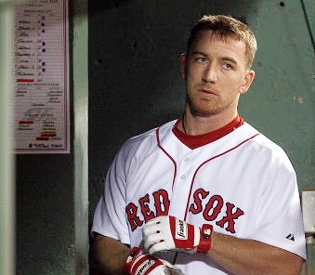 It looks like Queens was more appealing than Beirut after all for Jason Bay:
It looks like Queens was more appealing than Beirut after all for Jason Bay:While there is obviously a large amount of risk associated with this deal, I think this was move that the Mets had to make, given how badly they needed a power hitter. And it sure helps that the Mets only had to give Bay, who is one of the best free agents on the market, a four year deal.Free-agent outfielder Jason Bay has reached agreement on a four-year, guaranteed $66 million contract with the New York Mets, a baseball source confirmed to ESPN.com Tuesday.
The agreement will become official once Bay passes a physical exam sometime next week, the source said. The deal includes a vesting option year that could increase Bay's overall payout to slightly more than $80 million over five years.
WFAN was the first to report the agreement had been reached.
Bay, a three-time All-Star, hit .267 with 36 home runs and 119 RBIs for the Boston Red Sox in 2009.
Risk:
- How much better does Jason Bay make the Mets?
- Poor defensive player
- Did they overpay?
- Backloaded contract
- Does he want to play in New York
- Do the Mets have enough money to fill other needs?
- strikes out a lot
- Impact bat
- Only 4 years guaranteed
- Adds much needed power
- Improves the Mets' lineup
- Good will with fanbase
- Finally, a big move.
However, there are some important questions to ask with regards to this deal. Will Jason Bay be an adequate defensive player for the Mets? How will Jason Bay's power numbers react to Citi Field? How will the Mets' future be impacted by this backloaded deal?
This deal is a sure sign that the Mets are going for it now. Because the deal is backloaded, the Mets should have money remaining to spend on other needs. Bay is an important piece for the Mets moving forward, but signing him alone is not enough. The Mets have not done a good enough job over the years finding adequate role players to surround their core group and they need to do everything possible to surround the core with quality players, who can help this team win now. The Mets have one of the best cores in baseball, especially with Bay on board, but the fact remains that a team cannot win with six great players and a bunch of stiffs. The Mets need talent and depth if they are going to have a chance in 2010.

























